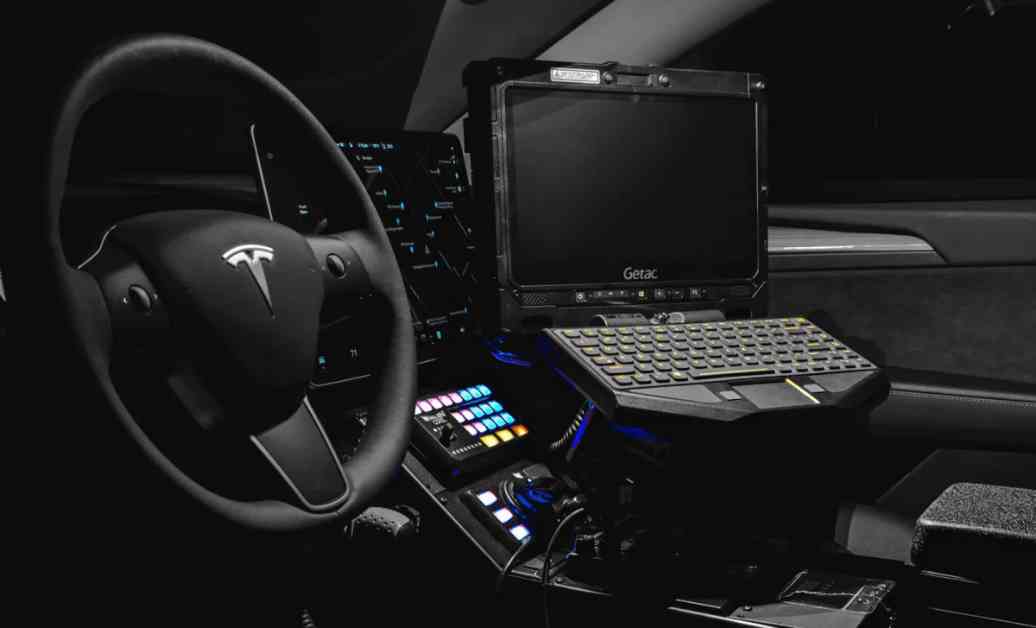Elon Musk recently showcased the latest technology from Tesla, including the sleek Cybercab robotaxis and a prototype of a new electric van. While Musk envisions a futuristic world, California police departments are facing challenges with their decision to replace their fleets with Tesla Y models. Despite being environmentally friendly and preparing for a zero-emissions future, these Teslas are proving to be problematic for law enforcement.
According to interviews conducted by SFGate with three Northern California police chiefs, the modified Tesla Y models present various issues. The back seat of the car is too small to accommodate more than one passenger, while the front is cramped for the officers. Additionally, there are concerns about “autopilot interference” when trying to pull over, reliance on unsecured charging stations leaving officers vulnerable during long-distance suspect transportation, and the inability to use the car’s engine block as cover during a firefight, as officers are trained to do.
The challenges faced by California police departments highlight the importance of considering practicality and functionality when adopting new technologies, even those that are environmentally conscious. While electric vehicles offer benefits such as reducing carbon emissions and dependence on fossil fuels, they must also meet the specific needs and requirements of law enforcement agencies.
In light of these issues, police departments may need to work closely with Tesla and other electric vehicle manufacturers to address the shortcomings of current models and develop solutions that are better suited for police use. This could involve customizing the design of the vehicles to accommodate law enforcement needs, improving charging infrastructure to ensure secure and reliable access, and integrating safety features that allow officers to perform their duties effectively in various scenarios.
Ultimately, the experience of California police departments with Tesla cop cars serves as a reminder that innovation must be accompanied by practicality and functionality to truly meet the needs of end-users. By addressing the challenges faced by law enforcement agencies, electric vehicle manufacturers can ensure that their products are not only environmentally friendly but also capable of supporting the critical work of police officers in serving and protecting their communities.











